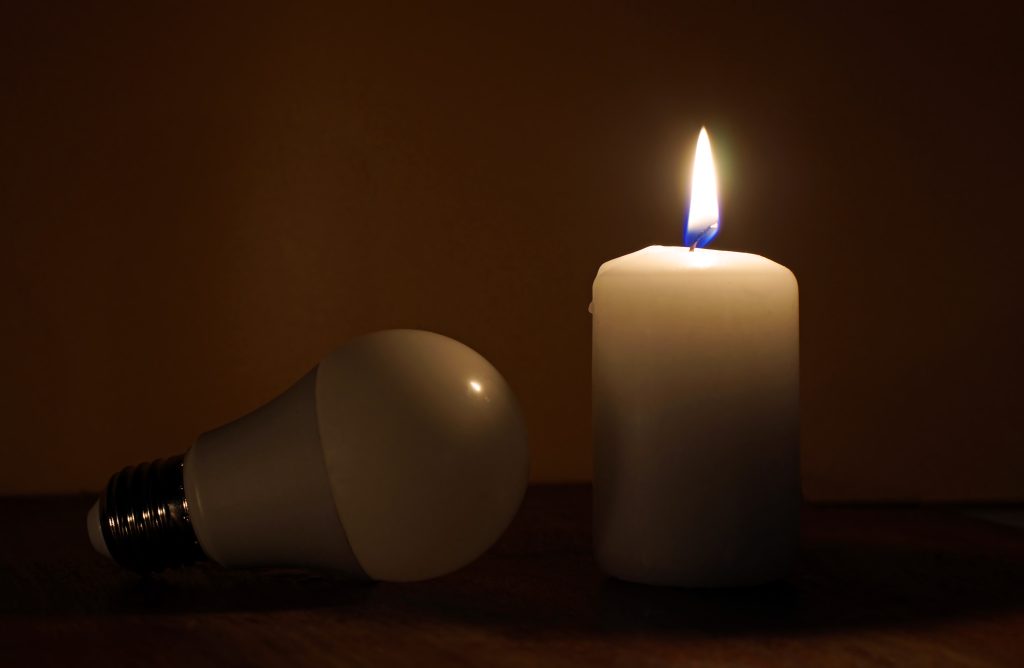Preparing for a power outage is essential for minimizing discomfort and potential risks during such events. An effective preparation strategy includes assembling an emergency kit containing flashlights, extra batteries, a first-aid kit, non-perishable food items, and at least one gallon of water per person daily to last several days. It’s also wise to have a battery-powered or hand-crank radio to stay informed about the outage status and any public safety announcements. Investing in surge protectors and uninterruptible power supplies (UPS) can protect your electronic devices from damage due to sudden power surges when electricity is restored. Additionally, consider the needs of all household members, including pets, and plan for medical needs such as medications that require refrigeration. Keeping a list of emergency contact numbers, including your utility company’s outage hotline, is crucial for quick access to information and reporting outages. By planning and understanding the steps to take before, during, and after a power outage, you can ensure the safety and well-being of your family.

Coal has historically been a major energy source in Alberta, contributing significantly to electricity generation. However, there has been a shift towards cleaner energy sources in recent years, driven by environmental concerns and government policies. Alberta is gradually reducing its reliance on coal in favour of natural gas and renewable energy sources.
Electricity can travel through air under certain conditions, primarily when the electrical potential difference (voltage) between two points is high enough to ionize the air and create a conductive path. This phenomenon is seen in nature as lightning, where a high voltage difference between clouds and the ground, or within clouds, causes electricity to discharge through the air. In man-made systems, sparking or arcing can occur when high voltage causes the air between conductors to become ionized. However, air is generally an insulator, and under normal conditions, it resists the flow of electricity. Electrical engineers use insulating materials and careful design to prevent unintended arcing in electrical equipment. Thus, while electricity can technically travel through air, it requires conditions that overcome air’s natural resistance to electrical flow.
The United Kingdom is credited with being the first country to use electricity for public use, marking a significant milestone in the history of electricity. In the late 19th century, the UK pioneered the development of electric lighting and energy distribution, leading to the world’s first public electricity supply in Godalming, Surrey, in 1881. This early adoption of electricity sparked further innovations and the spread of electric power across the globe. The UK’s role in the early days of electrical engineering and infrastructure set the foundation for the widespread use of electricity in the modern world. Other countries quickly followed suit, adopting electricity for public and private use, revolutionizing how societies operated and lived. The evolution of electricity usage from these initial deployments has led to electricity’s integral role in our daily lives today.
Energy companies are entities that specialize in the production, distribution, and sale of various forms of energy, including electricity, natural gas, oil, and renewable energy sources. These companies play a vital role in meeting the energy demands of consumers, businesses, and industries. They invest in exploration, extraction, and refining processes to obtain fossil fuels like oil and natural gas, which are crucial for powering transportation, heating, and electricity generation. These companies often operate extensive infrastructure, including power plants, pipelines, and transmission networks, to efficiently deliver energy resources to end-users.
Electricity can travel through water because water is a conductor, especially when it contains impurities or dissolved salts that provide ions to carry electrical charges. This is why it’s dangerous to operate electrical devices near water or to touch water that may be in contact with electricity. Pure water without impurities (distilled water) is a much poorer conductor of electricity because it lacks the ions necessary for conducting electric current. However, most water we encounter in our daily lives, including tap water and natural water bodies, has enough dissolved substances to conduct electricity. Safety measures, such as using Ground Fault Circuit Interrupters (GFCIs) in areas near water, are important to prevent electrical accidents. Electrical systems are designed with this conductivity in mind to ensure safety and prevent electrical hazards.
Yes, we typically allow customers to pay their electricity bills using a credit card. This payment method provides convenience and may offer additional benefits, such as rewards points or cash back, depending on your credit card provider. Customers can usually make credit card payments online through Peace Power’s customer portal, over the phone, or by setting up automatic payments. Securely storing your payment information on your account can facilitate faster payments in the future. Always ensure that your credit card information is updated to avoid any disruptions in your electricity service due to payment issues.
Links